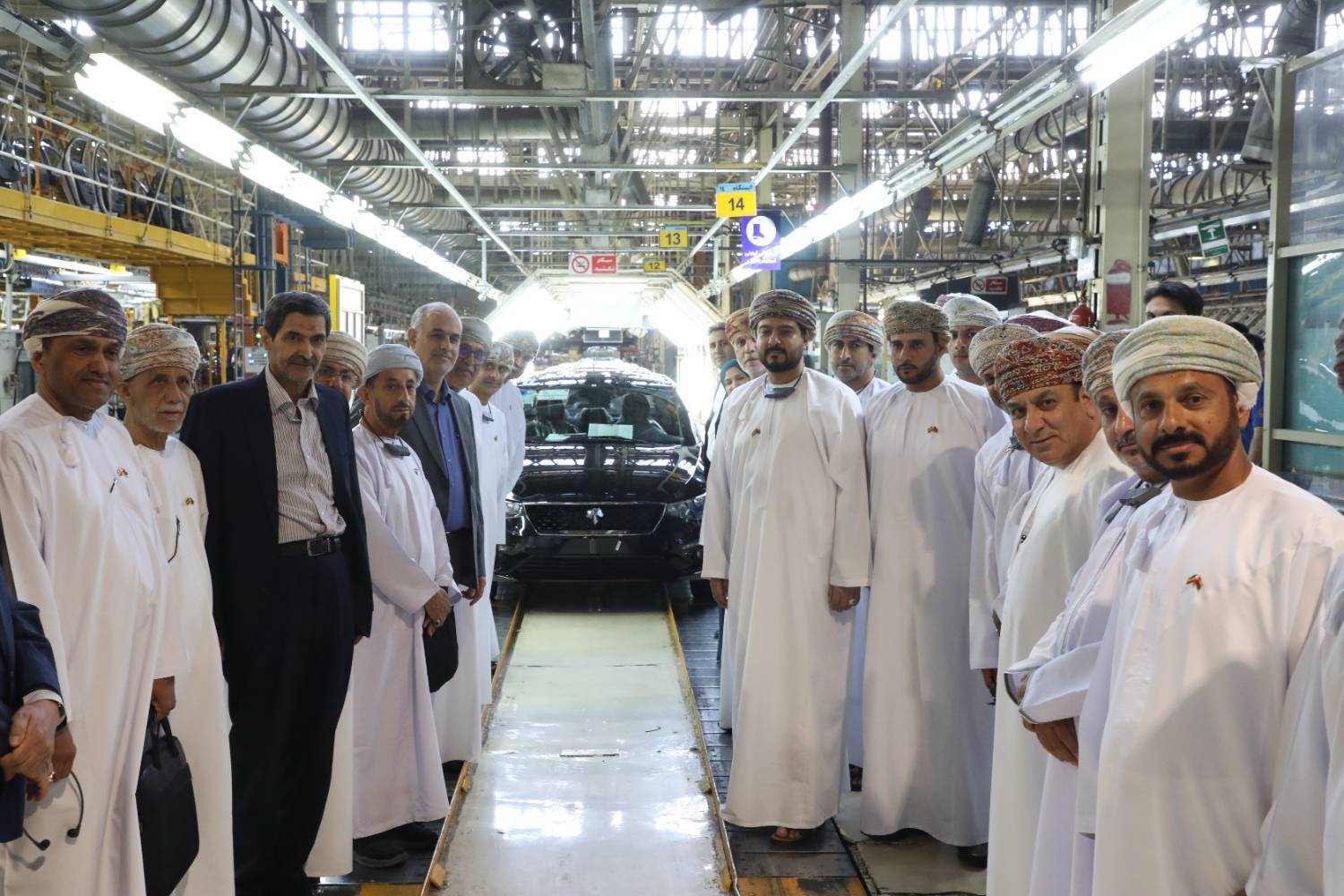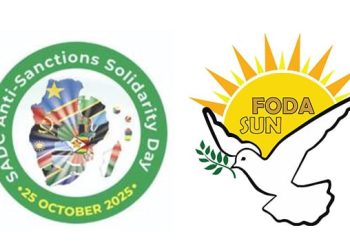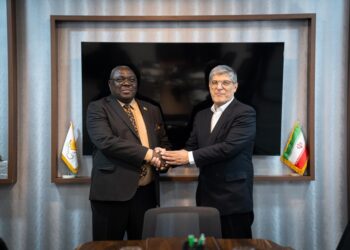The sanctions imposed on Iran have significantly affected not only its economy but also the economies of neighboring countries, including Oman. Therefore, the future lifting of these sanctions could facilitate Oman’s economic development. As a close trade and diplomatic partner of Iran, and a nation with an independent and mediatory foreign policy, Oman possesses substantial potential for collaboration with Iran. The removal of these sanctions would create numerous trade, economic, and diplomatic opportunities between the two nations.
This report aims to provide a comprehensive analysis of the positive effects that lifting anti-Iran sanctions could have on Oman. To this end, it first outlines the negative impacts of the sanctions across various sectors and concludes with an examination of the potential positive outcomes of their removal.
Bilateral Trade
The sanctions imposed on Iran have significantly restricted trade between Iran and Oman, reducing commercial opportunities between the two countries, particularly in the energy, food, and industrial goods sectors. Oman, as a close neighbor to Iran with a favorable geographic position for trade, possesses the potential to serve as a trade gateway for Iran. However, these sanctions have constrained this role.
A notable example is the import of agricultural and food products from Iran to Oman. Prior to the sanctions, Iran supplied a significant portion of Oman’s fruits and vegetables. For instance, the export of dates and citrus fruits from Iran to Oman has decreased due to banking and transportation challenges that have complicated the transfer of these goods. As a result, Oman has had to source these products from alternative markets at higher costs.
Another tangible instance is the decline in Iran’s export of construction materials to Oman. Before the sanctions, Iran was a major supplier of cement and tiles to Oman. However, due to banking restrictions and transportation difficulties, imports of these materials from Iran have diminished, forcing Oman to rely on suppliers from other countries, such as India and Turkey, at increased costs (OEC, 2024, https://shorturl.at/vhG9v).
Additionally, the export of Iranian handicrafts to Oman has also suffered. Prior to the sanctions, Iranian handicrafts, including handwoven carpets and enamelware, enjoyed considerable popularity in the Omani market. However, financial exchange and transportation issues have led to a decline in this trade, prompting Omanis to purchase similar products from other countries such as India (OEC, 2024, https://shorturl.at/vhG9v).
Joint Energy Projects
Oman and Iran had previously planned to develop joint energy projects, such as the Iran-Oman gas pipeline. However, the imposition of sanctions has either halted or significantly slowed these initiatives. This situation has adversely affected both Iran and Oman, as Oman requires additional gas resources to meet its domestic needs and export demands.
A prominent example is the Iran-Oman gas pipeline project, for which an agreement was signed in 2013. This project was intended to transport 10 billion cubic meters of Iranian natural gas annually to Oman. However, sanctions have caused the project to stall, preventing Iran from benefiting from gas revenues and forcing Oman to rely on alternative markets for liquefied natural gas (LNG) at higher costs (Reuters, 2022, https://shorturl.at/FVGnA).
In addition to the gas pipeline, another project impacted by sanctions was the construction of a joint LNG facility in Oman, designed to enable Iran to export its gas to global markets. Sanctions have discouraged international investors from participating in this initiative, resulting in Oman losing potential revenues from this collaboration.
Another example involves joint plans for refinery technologies. Iran and Oman had programs to establish shared refineries to process Iranian crude oil into petroleum products in Oman. However, due to limited access to modern equipment stemming from sanctions and restrictions on foreign investments, these projects have either been suspended or significantly delayed (Enerdata, 2018, https://shorturl.at/ZG9fZ).
Mutual Investments
Sanctions have significantly curtailed mutual investments between Iran and Oman. Oman, which has consistently sought to attract foreign investments, has been unable to capitalize on Iranian investment capacities. Additionally, Omani companies have refrained from entering the Iranian market due to concerns regarding U.S. secondary sanctions.
A prominent example is the absence of Omani investment in Iran’s tourism and infrastructure projects. For instance, in the Chabahar Free Zone, which could have attracted Omani investors, sanctions-related restrictions have impeded their participation. Conversely, Iranian companies have been unable to invest in the development of Oman’s free zones, such as Duqm.
Another instance is the stalled participation of Oman in tourism projects in northern Iranian provinces like Gilan and Mazandaran. Omanis had previously expressed interest in investing in hotel construction and recreational facilities in these regions. However, due to sanctions and the lack of appropriate banking relationships, such investments have not materialized (Isna, 2024, https://shorturl.at/fqsWV). (In Persian)
Furthermore, there has been a notable absence of Omani involvement in the construction of industrial parks in Iran’s border regions. Proposals had been made for establishing joint industrial zones, particularly in the fields of food production and agricultural product packaging. However, due to sanctions and economic uncertainties, no significant progress has been achieved.
Impact on Transportation and Transit
Oman, with its strategic ports such as Sohar and Duqm, possesses significant potential to facilitate the transit of Iranian goods to global markets. However, sanctions have imposed substantial pressure on Iran’s maritime trade, preventing Oman from fully capitalizing on this opportunity to enhance its economy.
Prior to the implementation of sanctions, Bandar Abbas in Iran and Sohar Port in Oman functioned as primary transit routes for goods between the two nations. Since the imposition of sanctions, challenges related to insurance and refueling have emerged for Iranian vessels. For instance, Omani shipping companies have encountered difficulties in efficiently transporting Iranian goods to other markets, resulting in a loss of considerable revenue that could have been generated through this collaboration (Irandaily, 2023, https://shorturl.at/bEHmD).
Another example is the decline in the transit of Iranian agricultural and industrial products through Sohar Port to Gulf Cooperation Council (GCC) countries. Before sanctions, this transit route was one of the most cost-effective channels for Iranian exports. Presently, Iranian ships face challenges in utilizing this pathway due to insurance issues and maritime sanctions.
Furthermore, Oman has experienced a reduction in its role as a hub for the re-export of Iranian goods to Africa. Oman, particularly Duqm Port, had the potential to serve as a bridge between Iran and African nations. However, sanctions—including those affecting maritime transport and ship insurance—have impeded the realization of this capacity (ECOCCI, 2019, https://shorturl.at/PQmU1).
Impact on Tourism
Oman is a popular tourist destination for Iranians, and similarly, Omanis frequently travel to Iran. However, sanctions have significantly reduced tourism flows between the two countries by diminishing the purchasing power of Iranians and imposing banking and financial restrictions. This decline has adversely affected Oman’s tourism industry.
For instance, the number of direct flights between Iran and Oman has decreased during the sanctions period. Many Iranians, due to the devaluation of their national currency and banking restrictions, have lost the financial capacity to travel to Oman. This decline in tourism is particularly noticeable in Muscat and coastal regions such as Salalah, which were traditionally popular among Iranian visitors. Additionally, Omanis traveling to Iran for medical or leisure purposes have faced difficulties in transferring funds (Irandaily, 2023, https://shorturl.at/bEHmD).
Beyond the reduction in Iranian travel to Oman, sanctions have also hindered Omani airlines, such as Oman Air, from establishing new flight routes to Iran’s tourist cities. Another example is the decline in interactions within the health tourism sector. Many Omanis previously traveled to Iranian hospitals for advanced medical services, including specialized surgeries. However, sanctions and financial transfer challenges have curtailed this trend, prompting Omanis to seek treatment in alternative countries such as India or Turkey (Researchgate, 2023, https://shorturl.at/Rd3aP).
Banking and Financial Relations
Sanctions, particularly within the banking sector, have significantly disrupted financial relations between Iran and Oman. Omani banks, concerned about potential secondary sanctions, face limitations in their ability to cooperate with Iranian banks. These restrictions have rendered money transfers and trade facilitation between the two countries increasingly challenging.
One notable example of this challenge is the inability of Iranian citizens to open accounts in Omani banks. For instance, Omani banks have been reluctant to accept Iranian clients for fund transfers or to settle commercial accounts. As a result, Iranian and Omani traders have had to rely on intermediary systems, which incur higher costs and adversely affect mutual economic interests. Another critical issue is the restriction preventing Iranian banks in Oman from utilizing SWIFT services. This limitation complicates payment processing for Omani companies willing to engage in trade with Iran, particularly impacting large-scale transactions, such as importing gas or exporting industrial equipment (Wiley Online Library, 2022, https://shorturl.at/FegS3).
Additionally, Omani companies face challenges in making payments to Iranian suppliers, leading to an increased reliance on intermediary systems, such as currency exchange firms. Specifically, in large transactions, such as purchasing industrial machinery, Omani companies have incurred additional costs due to the lack of direct banking channels.
Oman’s Diplomatic Role
Oman has consistently sought to play an active role in reducing tensions in the region as a mediator and peace-seeking nation. However, the sanctions imposed on Iran have diminished Oman’s capacity to foster regional cooperation, presenting significant obstacles to its diplomatic efforts (Newarab, 2023, https://shorturl.at/Kfptr).
A clear example of this is Oman’s reduced influence in mediating issues related to the Iran nuclear deal (JCPOA). Previously, Oman played a key role in facilitating negotiations between Iran and the United States, but it has struggled to offer effective economic proposals due to the complexities of the sanctions. For instance, Oman has been unable to leverage its banking capacities to facilitate financial exchanges between Iran and Western countries as a result of these restrictions.
Additionally, Oman’s ability to utilize its economic resources to persuade the United States to ease sanctions on Iran has diminished. Previously, Oman acted as a mediator to establish special banking channels for facilitating humanitarian trade with Iran, but it has been unable to sustain this role due to sanctions and international pressures.
In the past, Oman made efforts to mitigate the impact of sanctions through initiatives such as utilizing its free ports for the export of humanitarian goods. For example, a plan was developed to facilitate the shipment of medicine and medical equipment from Oman to Iran. However, this initiative faced significant setbacks due to U.S. pressure and concerns over secondary sanctions (Tehrantimes, 2020, https://shorturl.at/CG7N5).
Infrastructure Development
Despite the significant potential for cooperation between Iran and Oman in developing transportation, energy, and communication infrastructure, sanctions have delayed or entirely halted the implementation of these projects. Oman, which aims to diversify its economy, has been deprived of these potential opportunities for economic growth.
A prominent example is the disruption of the regular shipping line project between Chabahar Port in Iran and Sohar Port in Oman. This project could have contributed to regional trade development; however, sanctions have prevented Iran and Oman from fully capitalizing on this potential. Oman, currently enhancing its ports, particularly Duqm, has numerous opportunities for collaboration with Iran in this sector (Iranpress, 2023, https://shorturl.at/3YitV).
Another missed opportunity is the lack of development of a rail network between Iran and Oman through joint logistics projects. Iran could have established an international rail network by utilizing Chabahar Port and connecting it to Oman’s free zones, thereby facilitating regional trade. However, sanctions have hindered the attraction of necessary investments for these initiatives.
Additionally, the failure to establish fiber-optic connections between Iran and Oman stands out as another lost opportunity. Proposed projects aimed at creating joint communication networks could have positioned Oman as a regional communication hub, allowing Iran to utilize this network for IT service exports. However, technology companies have yet to be attracted to participate in this endeavor (Isna, 2023, isna.ir/xdNR2w). (In Persian)
Conclusion
The anti-Iranian sanctions have had repercussions that extend beyond Iran’s borders, significantly affecting neighboring countries, particularly Oman. Due to its geographical location and neutral foreign policy, Oman has historically acted as a conduit for Iran’s engagement with the global community. However, it now faces considerable challenges in the economic, commercial, and diplomatic arenas. The removal of anti-Iranian sanctions presents a viable solution to these issues.
Lifting these sanctions could substantially enhance both the economic and diplomatic advantages for Oman, both directly and indirectly. This would encompass an increase in bilateral trade and joint investments, as well as advancements in infrastructure projects and financial ties. The elimination of these restrictions would create significant opportunities for Oman to bolster its economy and diplomatic stature. Enhanced bilateral trade, progress in joint energy initiatives, elevated investment levels, and the establishment of banking relations are among the many benefits Oman stands to gain from the removal of these sanctions.
Furthermore, Oman would not only gain access to vital commercial opportunities, such as natural gas supplies from Iran and participation in logistical and infrastructure projects, but it would also regain its regional role as an effective mediator capable of facilitating economic and diplomatic relations. Improved flow of goods, heightened financial and banking interactions, and an increase in tourist arrivals from Iran to Oman are all potential benefits that could aid in diversifying and strengthening Oman’s economy.
The removal of sanctions would also empower Oman to leverage its economic and diplomatic capacities to enhance Iran’s relations with the international community. Over the years, Oman has actively sought to mitigate regional tensions through mediation and by proposing economic and diplomatic solutions. The lifting of sanctions would facilitate this process and amplify the potential benefits for Oman in regional interactions.
In conclusion, it is evident that the removal or reduction of sanctions would benefit not only Iran but also Oman and the broader region. A return to normalized conditions could lay the groundwork for strengthened economic cooperation, the advancement of infrastructure projects, and the restoration of Oman’s diplomatic role on both regional and global stages. For this reason, facilitating discussions to reduce sanctions is a priority not only for Iran but also for neighboring countries, including Oman. The removal or reduction of sanctions could yield advantages for both nations and promote regional stability and growth, thereby reaffirming Oman as a key partner for Iran.
References
- Irandaily (2023), Iran-Oman bright prospects of trade, Accessible at: https://shorturl.at/bEHmD
- OEC (2024), Iran (IRN) and Oman (OMN) Trade, Accessible at: https://shorturl.at/vhG9v
- Reuters (2022), Iran to revive gas pipeline project to Oman, IRNA reports, Accessible at: https://shorturl.at/FVGnA
- Enerdata (2018), The Iran-Oman gas interconnection project is gaining momentum, Accessible at: https://shorturl.at/ZG9fZ
- Isna (2024), Omani tourists’ desire to visit Mazandaran (In Persian), Accessible at: https://shorturl.at/fqsWV
- ECOCCI (2019), Oman, safe corridor for re-export of Iranian commodities, Accessible at: https://shorturl.at/PQmU1
- Researchgate (2023), Economic Barriers to Health Tourism Development in Iran, Accessible at: https://shorturl.at/Rd3aP
- Wiley Online Library (2022,) Iran’s Trade with Neighbors: Sanctions’ Impact and the Alternatives, Accessible at: https://shorturl.at/FegS3
- Newarab (2023), A diplomatic bridge: Oman’s relations with Iran, Accessible at: https://shorturl.at/Kfptr
- Iranpress (2023), Chabahar, Oman passenger shipping line resumes operation, Accessible at: https://shorturl.at/3YitV
- Tehrantimes (2020), Oman sends anti-COVID-19 consignment to Iran, Accessible at: https://shorturl.at/CG7N5
- Isna (2023), Iran and Oman agree on extensive communications cooperation (In Persian), Accessible at: isna.ir/xdNR2w





